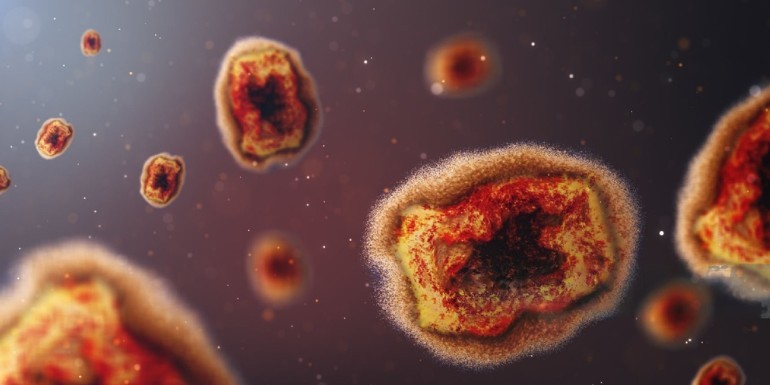A threat hidden in the body: what do we know about parasites?

Parasites in the body – what do we know about them?
Mysterious and often unnoticed - parasites in the body that can secretly inhabit our body, causing various health problems. What do we really know about them? The human body, seemingly inflexible and strong, can be home to parasites. These small organisms, often invisible to the naked eye, can inhabit our body, causing various health ailments. What threats can they pose to our health? Can you defend yourself against them? It's worth learning more about these microscopic creatures and how you can minimize the risk of infection.
Parasites in the body – a threat not only in the tropics
Parasites, although often associated with exotic countries and climates, pose a potential risk to our health regardless of where we live. Parasites are organisms that live in the body of a host, feeding on its substances or tissues. Although most of them are invisible to the naked eye, their presence can lead to serious health problems. Types of parasites and methods of infection There are many different types of parasites, but the most commonly associated with infections in humans are: protozoa, worms, and compound parasites. Parasitic infection can occur in many ways, including ingestion of contaminated food or water, bites from insects that carry parasites, contact with infected animals or people, and by transfer of parasite eggs or larvae from hands to mouth. Therefore, personal hygiene and attention to high quality food and water are crucial to preventing infections.
Symptoms and potential dangers
Symptoms of parasite infection may be diverse and depend on the type of parasite and the place where it develops. Common symptoms include abdominal pain, diarrhea, nausea, weight loss, fever and fatigue. In the case of more serious infections, parasites can lead to nutrient absorption disorders, anemia, and even damage to internal organs. It is worth noting that some parasites, such as tapeworms, may be difficult to notice for a long time, which may ultimately lead to chronic infections.
Diagnosis and treatment
Diagnosing a parasitic infection often requires specialized tests, such as examining stools for the presence of parasite eggs or larvae. Once the infection is confirmed, the doctor prescribes appropriate treatment, which usually includes antiparasitic medications. There are many effective treatments available on the market that help get rid of parasites and relieve symptoms. Treatment should be carried out under strict medical supervision to ensure effectiveness and minimize side effects.
Prevention of parasitic infections
The best way to protect yourself against parasites is prevention. Following personal hygiene rules, avoiding eating raw meat and fish, washing fruit and vegetables before eating and avoiding drinking unpurified water - these are key steps in preventing infections. Additionally, when traveling to countries with a high risk of parasitic infections, it is worth consulting a doctor and considering vaccinations or preventive medications. With proper knowledge and attention to hygiene, you can minimize the risk of infection and enjoy health for many years. Parasites as a global problem Parasites are a global problem, especially in countries with low sanitation standards and limited socioeconomic conditions. Parasitic diseases such as malaria and schistosomiasis affect millions of people around the world, contributing to a significant health burden. Therefore, actions to control and eliminate parasites, especially among the poorest communities, are crucial to improving the health of the global population.
Research on parasites and their importance
Parasites are also an important object of scientific research. Modern research on parasites helps to understand their biology, develops new methods of diagnosis and treatment, and sheds light on the evolutionary relationships between parasites and their hosts. This is important because this knowledge can lead to better strategies for managing and controlling parasites. The impact of parasites on the human body is the subject of extensive research and scientific interests. Understanding the mechanisms of infection, symptoms and treatments allows for more effective prevention and control of parasitic infections. However, compliance with basic hygiene rules and prevention remain key aspects in protection against these types of threats.
